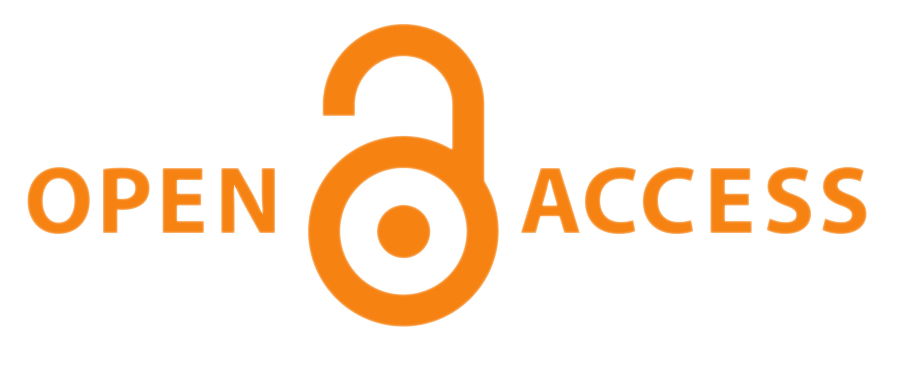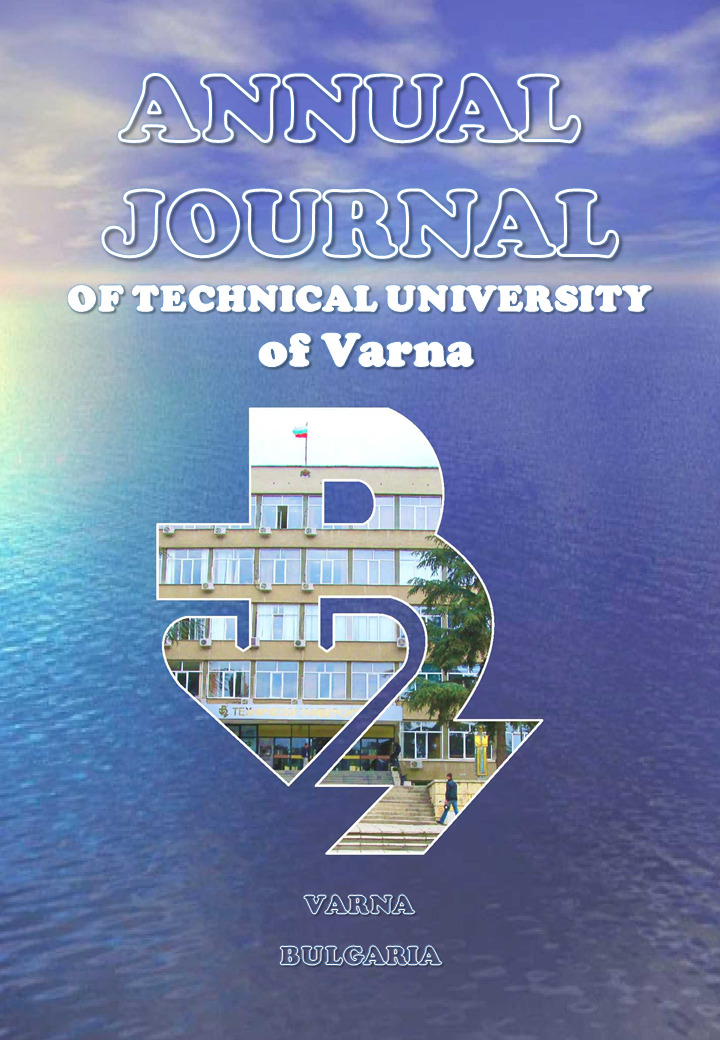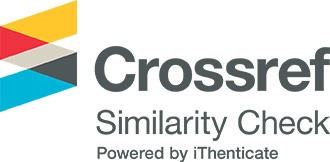Science teachers’ knowledge, attitudes and skills as determinants of classroom practices in entrepreneurship education in senior secondary schools in Lagos, Nigeria
##semicolon##
https://doi.org/10.29114/ajtuv.vol3.iss2.146##semicolon##
Science Teachers##common.commaListSeparator## entrepreneurship knowledge##common.commaListSeparator## entrepreneurship attitudes##common.commaListSeparator## entrepreneurship skills##common.commaListSeparator## classroom practicesАбстракт
Entrepreneurship behaviour is a 21st century attribute required for transforming the industrial and employment space into productive ones. Science students are critical towards the achievement of these requirements. To ensure quality entrepreneurship education, science teachers’ entrepreneurship background and characteristics become germane. This study, therefore, investigated the extent to which science teachers’ entrepreneurship knowledge, attitudes and skills determine their classroom practices in entrepreneurship education in selected Senior Secondary Schools in Lagos, Nigeria. The correlational type of the cross-sectional descriptive research design was adopted. A purposively selected sample of 245 SS2 Science teachers from thirty schools in Lagos mainland, Nigeria participated in the study. Instruments used were: Teacher Entrepreneurship Knowledge Test (r=.86), Teacher Entrepreneurship Attitudes Scale (r=.89), Teacher Entrepreneurship Skills Inventory (r=.85) and Classroom Practices Rating Scale (r=.89). Data were analysed using Pearson Product Moment Correlation and Multiple Regression. Findings showed strong and significant bivariate relationships between each of teachers knowledge (r=.59), attitudes r=.55), skills (r=.52) and classroom practices. The three factors jointly explained 46% of classroom practices with significant relative effects. Teachers require good knowledge, attitudes and skills for effective implementation of entrepreneurship programmes in science education, hence, they need to be exposed to in-service training in entrepreneurial studies.
Изтегляния
##submission.citations##
<p>Ababio, O. Y. (2005). The New School Chemistry for Senior Secondary Schools (3rd Edition). Onitsha, African Fast Publisher Ltd.<br /> <br />Achor, E.E., & Wilfred-Bonse, K.U. (2013). The need to integrate entrepreneurship education into science education teachers' curriculum in Nigeria. Journal of Science and Vocational Education, 7, 111-123.<br /><a href="https://scholar.google.com/scholar?hl=bg&as_sdt=0%2C5&q=Achor%2C+E.E.%2C+%26+Wilfred-Bonse%2C+K.U.+%282013%29.+The+need+to+integrate+entrepreneurship+education+into+science+education+teachers%27+curriculum+in+Nigeria.+Journal+of+Science+and+Vocational+Education%2C+7%2C+111-123.&btnG=" target="_blank" rel="noopener">Google Scholar</a><br /> <br />Adeyemo, S. A. (2009). Understanding and Acquisition of Entrepreneurial Skills: A Pedagogical Re-orientation for Classroom Teacher in Science Education. Journal of Turkish Science Education, 6 (3), 57-65.<br /><a href="https://scholar.google.com/scholar?hl=bg&as_sdt=0%2C5&q=Adeyemo%2C+S.+A.+%282009%29.+Understanding+and+Acquisition+of+Entrepreneurial+Skills%3A+A+Pedagogical+Re-orientation+for+Classroom+Teacher+in+Science+Education.+Journal+of+Turkish+Science+Education%2C+6+%283%29%2C+57-65.&btnG=" target="_blank" rel="noopener">Google Scholar</a><br /> <br />Agommuoh, P. C. & Ndirika, M. C. (2017). Strategies for Promoting Entrepreneurial Skills in Science Education Students for Poverty Eradication. IOSR Journal of Research & Method in Education, 7 (3), 45-49.<br /><a href="https://doi.org/10.9790/7388-0703034549" target="_blank" rel="noopener">Crossref</a><br /> <br />Akinsola, M. K. & Ogunleye, B. O. (2003). Improving mathematics and science curricula at the implementation stage. O. Ayodele-Bamisaiye, I. A. Nwazuoke and A. Okediran (Eds.) Education this Millennium- Innovations in Theory and Practice. Ibadan: Macmillan Nigeria Publishers Limited. 211-218. ISBN: 978-018-352-3.<br /> <br />Akinsola, M. K. & Ogunleye, B. O. (2004). Statistical Designs and Research Methods in Education. Unpublished Mimeograph, Department of Teacher Education, University of Ibadan. Ibadan, Nigeria.<br /> <br />Alam, G. M., Oloruntegbe, K. O. & Orimogunje, T. (2010). Volumetric analysis and chemistry students' performance: combined influence of study habit, physiological and psychological factors. Scientific Research and Essays, 5 (11),1325-1332.
<p>Babajide, V. F. T. (2010). Generative ad Predict-Observe-Expain Instructional Strategies as Determinants of Senior Secondary School Students Achievement and Practical Skills in Physics. Unpublished PhD Thesis, University of Ibadan, Nigeria.</p>
<p> <br />Bakere, B. (2013). Addressing Youth Unemployment in Nigeria. Retrieved 10 August, 2019 from <a href="https://businessdayonline.com/2013/11/addressing" target="_blank" rel="noopener">https://businessdayonline.com/2013/11/addressing</a><br /> <br />Bamgboye, E. A., Lucas, E. O., Agbeja, B. O., Author & Fawole, I. (2005). Statistical analysis and inferences. In A. I.Olayinka, V. O. Taiwo, A. Raji-Oyelade & I. P. Farai (Eds.). Methodology of Basic and Applied Research. Ibadan: The Postgraduate School, University of Ibadan. ISBN: 978-37883-9-6.<br /> <br />Bikse, V. (2009). Petijums Latvijas progress uznemejdarbibas izglitibas attistiba pec iestajas Eiropas Savieniba / Research, The progress of the development of entrepreneurship education in Latvia after joining the European Union. Riga: University of Latvia, Faculty of Economics and Management, Mission of the European Commission in Latvia.<br /> <br />Biernacki, R. (2001). Industrialization. International Encyclopedia of the Social & Behavioral Sciences. <br /><a href="https://doi.org/10.1016/B0-08-043076-7/01897-0" target="_blank" rel="noopener">Crossref</a><br /> <br />Bolaji, O.A. (2012). Integrating entrepreneurship education into science education: Science teachers perspectives. Journal of Science, Technology, Mathematics and Education, 8 (3), 181-187. <br /><a href="https://scholar.google.com/scholar?hl=bg&as_sdt=0%2C5&q=Bolaji%2C+O.A.+%282012%29.+Integrating+entrepreneurship+education+into+science+education%3A+Science+teachers+perspectives.+Journal+of+Science%2C+Technology%2C+Mathematics+and+Education%2C+8+%283%29%2C+181-187.&btnG=" target="_blank" rel="noopener">Google Scholar</a><br /> <br />Chappelow, J. (2019). Industrialization. Retrieved from <a href="https://www.investopedia.com/terms/i/industrialization.asp" target="_blank" rel="noopener">https://www.investopedia.com/terms/i/industrialization.asp</a><br /> <br />Das, R. C. (2006). Science Teaching in Schools. New Delhi, Sterling publishers private limited.<br /> <br />Esaiasson, M. (2018). Why knowledge in entrepreneurship and innovation is needed. Retrieved from <a href="https://www.entrepreneur.lu.se/en" target="_blank" rel="noopener">https://www.entrepreneur.lu.se/en</a><br /> <br />European Commission (2008). Entrepreneurship in higher education. Especially within non-business studies: Final report of the expert group. Brussels, Belgium.<br /> <br />European Commission (2011). Entrepreneurship education: enabling teachers as a critical success factor. A report on teacher education and training to prepare teachers for the challenge of entrepreneurship education. Bruxelles: Entrepreneurship Unit.<br /> <br />European Commission (2015). Commission Staff Working Document. Turkey, 2015 Report.<br /> <br />Eya, N. M. (2015). Investigating the Contents of the Senior Secondary School Chemistry Curriculum that can Inculcate Entrepreneurial Skills among Students in Nigeria. International Journal for Cross-Disciplinary Subjects in Education (IJCDSE) 6 (2), 2195-2201.<br /><a href="https://doi.org/10.20533/ijcdse.2042.6364.2015.0303" target="_blank" rel="noopener">Crossref</a><br /> <br />Fahmy, A. F. M. (2000). Systemic Approach to teaching and learning chemistry for 21st century Workshop on New Trend in chemistry. Budapest, Hungary, August 5-10, 2000. Retrieved from fahmy@online.com.eg.<br /> <br />Federal Republic of Nigeria (2004). National Policy on Education. Lagos, Government Press.<br /> </p>
<p>Fensham, P. J. (2006). Science and technology education in the post-compulsory years. Hegarty-Hazel, E. (Ed.). The Student Laboratory and the Science Curriculum. London: Routeledge.<br /> <br />Ige, T. A. (2003). A problem-solving model for building theory and practice in science teaching. African Journal of Education Research, 9 (1&2), 147-155.</p>
<p><br />Kaseorg, M., & Raudsaar, M. (2013). Students'attitudes towards entrepreneurship. International Journal of Business and Management Studies, 2 (2), 31-43. <br /><a href="https://scholar.google.com/scholar?hl=bg&as_sdt=0%2C5&q=Kaseorg%2C+M.%2C+%26+Raudsaar%2C+M.+%282013%29.+Students%27attitudes+towards+entrepreneurship.+International+Journal+of+Business+and+Management+Studies%2C+2+%282%29%2C+31-43.&btnG=" target="_blank" rel="noopener">Google Scholar</a><br /> <br />Llopis, G. (2013). Working with an Entrepreneurial Attitude is a Powerful Addiction. Retrieved from <a href="https://www.forbes.com/sites/glennllopis/2013/01/15/working-with-an-entrepreneurial-attitude-is-a-powerful-addiction/#4f4cf89e6320" target="_blank" rel="noopener">https://www.forbes.com/sites/glennllopis/2013/01/15/working-with-an-entrepreneurial-attitude-is-a-powerful-addiction/#4f4cf89e6320</a><br /> <br />Lobler, H. (2006). Learning entrepreneurship from a constructivist perspective. Technology, Analysis & Strategic Management, 18 (1), 19-38.<br /><a href="https://doi.org/10.1080/09537320500520460" target="_blank" rel="noopener">Crossref</a><br /> <br />Neck, H.M., & Greene, P.G. (2011). Entrepreneurship education: known worlds and new frontiers. Journal of Small Business Management, 49 (1), 55-70.<br /><a href="https://doi.org/10.1111/j.1540-627X.2010.00314.x" target="_blank" rel="noopener">Crossref</a><br /> </p>
<p>Ogunlela, V. B. & Ogunleye, B. O. (2014). Promoting quality assurance practices for ODL programmes in West African higher educational institutions: The role of RETRIDAL. International Open and Distance Learning Journal. 4th ACDE 2014 Special Edition: 95-108.</p>
<p>Ogunleye, B. O. & Fasakin, A. O. (2011). Everyday phenomena in physics education: impact on male and female students' achievement, attitude and practical skills in urban and peri-urban settings in Nigeria. Pakistan Journal of Social Sciences, 8 (6), 316-324.<br /> <br />Ogunleye, B. O. (2007). Teachers' perceived barriers to successful implementation of ICT in the teaching and learning of science subjects in Nigerian secondary schools. Nigeria Journal of Computer Literacy, 8 (1), 15-31.<br /> <br />Ogunleye, B. O. (2010). Implementation of chemistry practical work in senior secondary schools in Ogun State, Nigeria. African Journal of Educational Management, 13 (2), 227-242.</p>
<p><br />Ogunleye, B. O. (2011). "Team pair solo" cooperative lerning and personality type as determinants of students' achievement and attitude to chemistry. African Research Review, 5 (6), 259-276.<br /><a href="https://doi.org/10.4314/afrrev.v5i6.22" target="_blank" rel="noopener">Crossref</a><br /> <br />Ogunleye, B. O. (2012). Relationship among teachers' science process skills, scientific attitudes and students' performance in Chemistry. International Journal of Educational Leadership, 4 (4), 41-48.<br /> <br />Ogunleye, Y. O. (2014). Impact of Collaborative Intervention Programme on pre-primary and Primary School Teachers Awareness, Acquisition and Utilisation of Educational Research Findings in Oyo State, Nigeria. Unpublished PhD Thesis, University of Ibadan, Ibadan, Nigeria.<br /><a href="https://scholar.google.com/scholar?hl=bg&as_sdt=0%2C5&q=Ogunleye%2C+Y.+O.+%282014%29.+Impact+of+Collaborative+Intervention+Programme+on+pre-primary+and+Primary+School+Teachers+Awareness%2C+Acquisition+and+Utilisation+of+Educational+Research+Findings+in+Oyo+State%2C+Nigeria.+Unpublished+PhD+Thesis%2C+University+of+Ibadan%2C+Ibadan%2C+Nigeria.&btnG=" target="_blank" rel="noopener">Google Scholar</a><br /> <br />Rae, D. & Carswell, M. (2001). Toward a conceptual understanding of entrepreneurial learning. Journal of Small Business and Enterprise Development, 8 (2), 150-8.<br /><a href="https://doi.org/10.1108/EUM0000000006816" target="_blank" rel="noopener">Crossref</a><br /> <br />Raffo, C., Lovatt, A., Banks, M., & O'Connor, J. (2000). Teaching and learning entrepreneurship for micro and small businesses in the cultural industries sector, Education + Training, 42 (6), 356-365.<br /><a href="https://doi.org/10.1108/00400910010353653" target="_blank" rel="noopener">Crossref</a><br /> <br />Rasmussen, E. & Sorheim, R. (2005). Action-Based Entrepreneurship Education. Technovation, 26 (2), 185-194.<br /><a href="https://doi.org/10.1016/j.technovation.2005.06.012" target="_blank" rel="noopener">Crossref</a><br /> <br />Reed, J. (2016). 5 Key Attitudes for Entrepreneurial Success. Retrieved from <a href="https://www.delawareinc.com/blog/five-key-attitudes-for-entrepreneurial-success/" target="_blank" rel="noopener">https://www.delawareinc.com/blog/five-key-attitudes-for-entrepreneurial-success/</a><br /> <br />Rudhumbu, D., Svotwa, D., Munyanyiwa, T. & Mutsau, M. (2016). Attitudes of students towards entrepreneurship education at two selected higher education institutions in Botswana: a critical analysis and reflection. Academic Journal of Interdisciplinary Studies, 5 (2), 84-94. <br /><a href="https://doi.org/10.5901/ajis.2016.v5n2p83" target="_blank" rel="noopener">Crossref</a><br /> <br />San-Tan, S., & Ng, C. F. (2006). A problem-based learning approach to entrepreneurship education. Education + Training, 48 (6), 416-428.<br /><a href="https://doi.org/10.1108/00400910610692606" target="_blank" rel="noopener">Crossref</a><br /> <br />Seikkula-Leino, J. (2011). The implementation of entrepreneurship education through curriculum reform in Finnish comprehensive schools. Journal of Curriculum Studies, 43 (1), 69-85.<br /><a href="https://doi.org/10.1080/00220270903544685" target="_blank" rel="noopener">Crossref</a><br /> <br />Uka, N. K. (2015). Developing Entrepreneurial Skills in Secondary School Students through Effective Mathematics Education in Aba Nigeria. International Journal of Education Learning and Developing, 3 (7), 1-11.<br /><a href="https://scholar.google.com/scholar?hl=bg&as_sdt=0%2C5&q=Uka%2C+N.+K.+%282015%29.+Developing+Entrepreneurial+Skills+in+Secondary+School+Students+through+Effective+Mathematics+Education+in+Aba+Nigeria.+International+Journal+of+Education+Learning+and+Developing%2C+3+%287%29%2C+1-11.&btnG=" target="_blank" rel="noopener">Google Scholar</a><br /> <br />Uka, N. K. (2006). Teachers' Mathematical Attitude Ethno mathematical Knowledge and Primary School Pupils Academic Achievement in Mathematics in Abia State, Nigeria. Unpublished Ph.D Thesis, University of Calabar, Calabar. <br /><a href="https://scholar.google.com/scholar?hl=bg&as_sdt=0%2C5&q=Uka%2C+N.+K.+%282006%29.+Teachers%27+Mathematical+Attitude+Ethno+mathematical+Knowledge+and+Primary+School+Pupils+Academic+Achievement+in+Mathematics+in+Abia+State%2C+Nigeria.+Unpublished+Ph.D+Thesis%2C+University+of+Calabar%2C+Calabar.&btnG=" target="_blank" rel="noopener">Google Scholar</a><br /> <br />Wei, X., Liu, X. & Sha, J. (2019). How Does the Entrepreneurship Education Influence the Students' Innovation? Testing on the Multiple Mediation Model. Front Psychology 10 (1557). <br /><a href="https://doi.org/10.3389/fpsyg.2019.01557" target="_blank" rel="noopener">Crossref</a></p>
##submission.downloads##
Публикуван
##submission.howToCite##
Брой
Раздел (Секция)
##submission.license##
СПОРАЗУМЕНИЕ ЗА ПУБЛИКУВАНЕ
Годишника на Технически университет - Варна (ГТУВ) цели да гарантира, че постъпващите статии се публикуват, като същевременно се предоставя значителна свобода на публикуващите ги автори. За изпълнение на тази цел, ГТУВ поддържа гъвкава политика относно авторските права, което означава, че няма прехвърляне на авторски права от автора на издателя, а авторите запазват изключително авторско право върху интелектуалното си произведение.
При изпращане на статия, Отговорния автор трябва да се съгласи и приеме правилата и условията за публикуване, изложени в настоящото Споразумение за публикуване, които са както следва:
ПРЕДОСТАВЯНЕ НА ПРАВА ОТ ОТГОВОРНИЯ АВТОР
Отговорния автор предоставя на ГТУВ за времето на пълния срок на авторското право и всяко следващо удължаване или подновяване, следното:
• Неотменимо, неизключително право да публикува, възпроизвежда, предоставя, разпространява или по друг начин използва предоставената работа в електронни и печатни издания и в производни произведения в целия свят, на всички езици и във всички известни съществуващи или в последствие възникнали медии.
• Неотменимо, неизключително право да създава и съхранява електронни архивни копия на работата, включително правото да депозира предоставената работа в дигитални хранилища с отворен достъп.
• Неотменимо, неизключително право на лицензиране на други лица да възпроизвеждат, превеждат, преиздават, предоставят и разпространяват предоставената работа при условие, че авторите са надлежно идентифицирани (за момента това се извършва чрез публикуване на произведението под лиценз Creative Commons Attribution 4.0 Unported).
С предоставянето на работата за публикуване, авторските права върху материала остават на авторите. Авторите запазват всички патентни, търговски марки и/или други права върху интелектуалната си собственост.
ЗАДЪЛЖЕНИЯ НА ОТГОВОРНИЯ АВТОР И СЪАВТОРИТЕ
При последващо разпространение или повторно публикуване на предоставената работа, Отговорния автор се съгласява да идентифицира ГТУВ, в който е публикувано произведението като първоначален източник на първото публикуване на работата. Отговорния автор гарантира, че съавторите също ще посочват ГТУВ като източник на първото публикуване, когато разпространяват, преиздават или се позовават на настоящата работа в бъдещи свои публикации.
ГАРАНЦИИ ОТ СТРАНА НА ОТГОВОРНИЯ АВТОР
Отговорния автор гарантира че предоставената за публикуване работа не нарушава никои действащи нормативни разпоредби или законни права на която и да е трета страна. Същия гарантира че работата не съдържа какъвто и да е материал, който може да се възприеме от читателската аудитория като неетичен, компрометиращ, нехуманен, расистки, клеветнически и/или нарушаващ авторски и/или имуществени права, права на интелектуална собственост или поети ангажименти за поверителност към трети страни. Отговорния автор гарантира че предоставеният материал е с оригинално съдържание, не е официално публикуван в никое друго издателство, както и че не е в процес на публикуване пред други издателства. Отговорния автор също така гарантира че притежава съответните правомощия да сключи настоящото споразумение. Ако предоставяната работа е подготвена съвместно с други съавтори, Отговорния автор гарантира че всички останали съавтори са информирани и са съгласни предоставения материал да бъде публикуван в ГТУВ.
Отговорния автор лично (или от името на авторския колектив) дава съгласието си да не въвлича по никакъв начин ГТУВ като страна в каквито и да било научни, академични, административни и/или съдебни спорове, в случаите на установени нарушения на горепосочените декларации и гаранции.
ПРАВА И ЗАДЪЛЖЕНИЯ НА ГТУВ
ГТУВ се съгласява да публикува предоставения материал, в случаите когато същия отговаря напълно на всички необходими качествени, технически и редакционни изисквания, като го идентифицира еднозначно с авторите му. В следствие на настоящото споразумение, на ГТУВ се предоставя правомощие да упражнява права при необходимост от името на авторите върху трети лица, като например в случаите на установено плагиатство, нарушаване на авторски права и др.
Декларация за поверителност на лични данни
Вашите имена и имейл адреси, въведени в уебсайта на ГТУВ, ще бъдат използвани само и изключително за обявените цели на настоящото списание и няма да бъдат използвани за никакви други цели от издателя или предоставяни на друга - трета страна.
Издателят се задължава да извърши всички необходими действия, цялата предоставена лична информация да остане конфиденциална, в рамките на издателя и да не бъде споделена с външни обекти или субекти, освен ако не е дадено предварително изрично разрешение от собственика на личните данни.
Вашата лична информация няма да бъде обект на продажба, разпространение или публикуване по какъвто и да е начин и под каквато и да е форма.









